Degrees & Programs Sociology and Anthropology
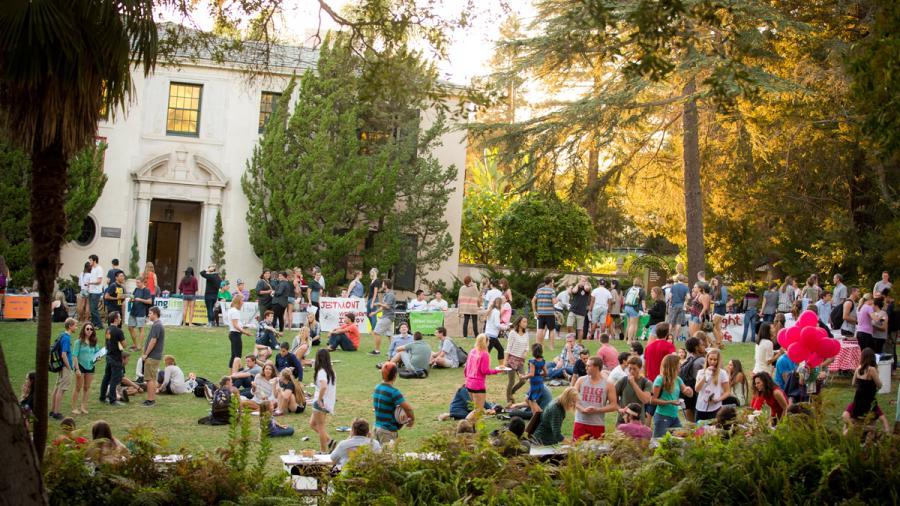
Study patterns of human behavior through courses in sociology, anthropology and social work.
Majors choose from three tracks: general sociology, human services and cross-cultural. Professors encourage you to be aware of ongoing social inequalities and engaged with local and global communities to work toward social justice and cultural redemption. You learn about the social nature of economic inequality, globalization, family, race, technology, gender, culture, religion and deviance from a Christian perspective. Earn academic credit for internships with agencies addressing social problems. Take advantage of off-campus programs, especially Westmont in San Francisco. Conduct independent research and present your work at the Western Sociology-Anthropology Undergraduate Research Conference and Westmont’s Student Research Symposium. Professors work closely with you and get to know you personally.
Requirements for a Sociology Track
SOCIOLOGY
Required Core Courses: 30 units
- SOC 001 Introduction to Sociology (4)
- SOC 108 Quantitative Research Methods (4)
- SOC 109 Qualitative Research Methods (4)
- SOC 171 Sociological Theory (4)
- SOC 190 or APP 190 or IS 190 Internship (4)
- SOC 195 Senior Seminar (2)
One of the following:
- SOC/AN 135 Gender in Cross-Cultural Perspective (4)
- SOC 189 Sociology of Race and Ethnicity (4)
One of the following:
- SOC 197 Senior Research Capstone (4)
- SOC 199 Major Honors (4)
Electives: 16 units
Four sociology classes worth 4 units each that are not listed above.
This track is designed for students who are seeking a broad training in the sociological perspective. It prepares students with a critical understanding of society that is essential to many careers including those in the non-profit sector, education, business, governance, church ministry, and media. It is particularly suited for students who wish to pursue further work in academic sociology beyond the B.A.
Required Courses: 30 units
- SOC 001 Introduction to Sociology (4)
- SOC 108 Quantitative Research Methods (4)
- SOC 109 Qualitative Research Methods (4)
- SOC 171 Sociological Theory (4)
- SOC 190 or APP 190 or IS 190 Internship (4)
- SOC 195 Senior Seminar (2)
One of the following:
- SOC/AN 135 Gender in Cross-Cultural Perspective (4)
- SOC 189 Sociology of Race and Ethnicity (4)
One of the following:
- SOC 197 Senior Research Capstone (4)
- SOC 199 Major Honors (4)
Electives (not taken above): 16 units
At least two of the following courses: (8)
- AN 115 Peoples and Cultures (4)
- AN 140 Food Systems (4)
- SOC 110 Social Problems (4)
- SOC 113 Social Determinants of Health (4)
- SOC/AN 135 Gender in Cross-Cultural Perspectives (4)
- SOC/AN 150 Cross-Cultural Communication (4)
- SOC 160 Internet and Society (4)
- SOC 182 Sociology of Deviance (4)
At least two of the following courses: (8)
- AN 145 Culture Theory (4)
- SOC/AN 120 Religion and Society (4)
- SOC 130 Sociology of the Family (4)
- SOC/AN 155 Sociology of Global Inequality and Development (4)
- SOC 161 Environmental Sociology (4)
- SOC 177 Interpersonal Violence (4)
- SOC 180 Human Services and Social Policy (4)
- SOC 185 Fundamentals of Social Work Practice (4)
- SOC 189 Sociology of Race and Ethnicity (4)
This track is designed for students who are interested in pursuing a career in the helping professions or in community organizations. It is appropriate for students interested in pursuing careers in social welfare and other human service areas as well as those drawn toward careers in counseling and the criminal justice system.
Required Core: 38 units
- SOC 001 Introduction to Sociology (4)
- SOC 108 Quantitative Research Methods (4)
- SOC 109 Qualitative Research Methods (4)
- SOC 171 Sociological Theory (4)
- SOC 180 Human Services and Social Policy (4)
- SOC 185 Fundamentals of Social Work Practice (4)
- SOC 190 or APP 190 or IS 190 Internship (4)
- SOC 195 Senior Seminar (2)
One of the following:
- SOC/AN 135 Gender in Cross-Cultural Perspective (4)
- SOC 189 Sociology of Race and Ethnicity (4)
One of the following:
- SOC 197 Senior Research Capstone (4)
- SOC 199 Major Honors (4)
Electives (not taken above): 8 units
At least one of the following courses:
- AN 115 Peoples and Cultures (4)
- AN 140 Food Systems (4)
- SOC 110 Social Problems (4)
- SOC 113 Social Determinants of Health (4)
- SOC/AN 135 Gender in Cross-Cultural Perspectives (4)
- SOC/AN 150 Cross-Cultural Communication (4)
- SOC 160 Internet and Society (4)
- SOC 182 Sociology of Deviance (4)
At least one of the following courses:
- AN 145 Culture Theory (4)
- SOC/AN 120 Religion and Society (4)
- SOC 130 Sociology of the Family (4)
- SOC/AN 155 Sociology of Global Inequality and Development (4)
- SOC 161 Environmental Sociology (4)
- SOC 177 Interpersonal Violence (4)
- SOC 180 Human Services and Social Policy (4)
- SOC 185 Fundamentals of Social Work Practice (4)
- SOC 189 Sociology of Race and Ethnicity (4)
This track is designed for students who are interested in studying the diverse cultural groups of the United States and the developing world. It is especially recommended for those who are interested in missions and cross-cultural ministries as well as for those who desire to pursue inter-cultural affairs for other applications.
Required Courses: 30 units
- AN 001 Introduction to Anthropology (4)
- SOC 108 Quantitative Research Methods (4)
- SOC 109 Qualitative Research Methods (4)
- AN 145 Culture Theory (4)
- SOC 190 or APP 190 or IS 190 Internship off-campus (4)
- SOC/AN 195 Senior Seminar (4)
One of the following:
- SOC/AN 135 Gender in Cross-Cultural Perspective (4)
- SOC 189 Sociology of Race & Ethnicity (4)
One of the following:
- SOC 197 Senior Research Capstone (4)
- SOC 199 Major Honors (4)
Electives (not taken above): 16 units
Students in the Cross-Cultural track are strongly encouraged to participate in a department-approved, off-campus, global program for elective credits.
At least one of the following courses:
- AN 115 Peoples and Cultures (4)
- AN 140 Food Systems (4)
- SOC/AN 135 Gender in Cross-Cultural Perspectives (4)
- SOC/AN 150 Cross-Cultural Communication (4)
At least one of the following courses:
- SOC/AN 120 Religion and Society (4)
- SOC 130 Sociology of the Family (4)
- SOC/AN 155 Sociology of Global Inequality & Development (4)
- SOC 189 Sociology of Race and Ethnicity (4)
Additional electives, if needed: (4-8)
- SOC 110 Social Problems (4)
- SOC 113 Social Determinants of Health (4)
- SOC 160 Internet & Society (4)
- SOC 161 Environmental Sociology (4)
- SOC 177 Interpersonal Violence (4)
- SOC 180 Human Services & Social Policy (4)
- SOC 182 Sociology of Deviance (4)
- SOC 185 Fundamentals of Social Work Practice (4)
Requirements for a Sociology Minor: 24 units
- SOC 001 Introduction to Sociology (4)
- SOC 171 Sociological Theory (4)
- and Four Upper-Division SOC classes: (16)
Requirements for an Anthropology Minor: 24 units
- AN 001 Introduction to Cultural Anthropology (4)
- AN 145 Culture Theory (4)
Three of the following: (12)
- AN 130 Applied Anthropology (4)
- AN 135 Gender in Cross-Cultural Communication (4)
- AN 140 Food Systems (4)
- AN 150 Cross-Cultural Communication
- AN 155 Sociology of Global Inequality & Development
- AN 196 Topical Seminar (4)
And an Upper-Division Elective in Sociology or Anthropology of your choice. (4)
Sociology and Anthropology Faculty Highlights
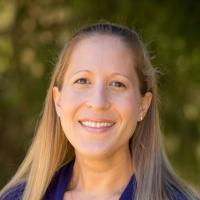
Explores trauma recovery, posttraumatic growth and resilience to help people make positive changes.
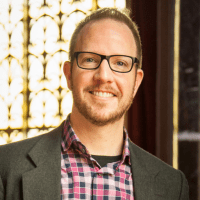
Examines the associations between religion/spirituality and population health and well-being.
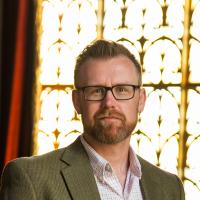
Explores the role of modern technology in the changing nature of our social relationships, along with a project examining the effects of social policies on the formerly incarcerated in California.
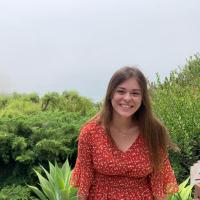
Her primary research interests include rural sociology and criminology. Her master’s thesis focuses on women’s perceptions of criminal courts, while her dissertation focuses on rural-urban differences in housing affordability and poverty in U.S. counties with colleges and universities.
Email the Chair of the Sociology Department: Dr. Blake Kent

Email: bkent@westmont.edu
Office is upstairs in Deane Hall 209.
Career Paths
- Social Work
- Counseling
- Probation
- Law Enforcement
- Youth Services
- International Relief
- Development Work
- Foreign Service
- International Business
- Missionary Outreach in Developing Countries
- Law
- Public Administration
- Church Ministry
- Community Development
- Health Industry
- Non-Profit Organizations
- Media
See career paths for graduates who majored or minored in sociology at Westmont.
See career paths for graduates who majored or minored in anthropology at Westmont.
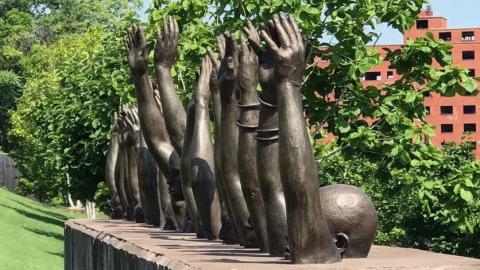
Dr. Sarah Jirek has recently completed the data collection for her research project examining formerly incarcerated individuals' experiences with the criminal justice system and their perspectives on criminal justice reform. Dr. Jirek designed and implemented a mixed-methods study exploring: 1) How can we better promote the successful reintegration of formerly incarcerated individuals? 2) How do individuals successfully desist from crime? and 3) What changes in social structures, societal institutions, and social programs are needed to: a) reduce the numbers of individuals who get involved in the criminal justice system, and b) promote the successful reintegration of individuals post-release? She conducted 83 in-depth, qualitative interviews with, as well as administered 15 surveys to, research participants -- including 75 formerly incarcerated individuals and 8 reentry professionals.

Blake Victor Kent served as lead author on a study, "Do Religious Spiritual Factors Moderate the Association Between Suffering and Religious/Spiritual Struggles?" A Three-Wave Longitudinal Study of U.S Adults with Chronic Illness," which appears in the Journal for the Scientific Study of Religion.
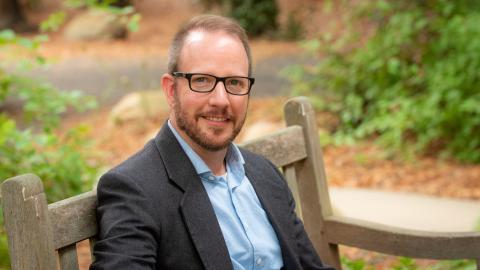
Dr. Kent, assistant professor of sociology, co-authored a national study examining the link between perceived relationship with God and mental health from a sample of more than 1,600 Americans. The research suggests that religious believers who relate to God in an uncertain or anxious manner are more likely to experience symptoms of psychological distress, including anxiety, paranoia, obsession and compulsion. "Attachment to God and Psychological Distress: Evidence of a Curvilinear Relationship" appears in the Journal for the Scientific Study of Religion.
Blake was also featured on the Attached to the Invisible podcast, hosted by Krispin Mayfield. The conversation featured Dr. Kent's research in attachment to God and the sociology of religion.
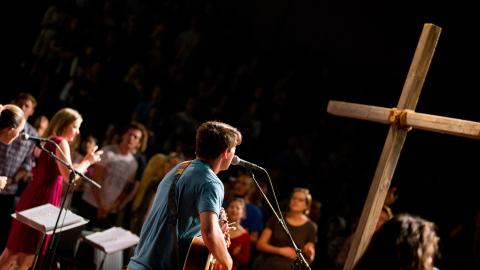
Blake Victor Kent presented to the National Institutes of Health Scientific Interest Group on Religion, Spirituality, and Health in a talk titled "Defining Religion and Spirituality in Religious and Ethnic Minorities: Perspectives for Health Research." He participated as a representative of the Study on Stress, Spirituality, and Health housed at Massachusetts General Hospital and Harvard Medical School, where he is a Research Affiliate.
Blake also presented a paper with his research assistant, Daniel Jang ('23), at the annual meeting of the Association for the Sociology of Religion. The paper, "Religion/Spirituality and Prevalent Hypertension among Ethnic Cohorts in the Study on Stress, Spirituality, and Health," is part of their work with the Harvard Center on Genomics, Vulnerable Populations, and Health Disparities. Mr. Jang is a research assistant at the center, where Dr. Kent serves as an affiliated researcher.

Meeting immigrants and formerly unhoused people challenged the Trailhead students to think both personally and structurally about social problems. Sociology professor Dr. Blake Kent helped students frame those experiences and begin to develop a Christian sociological imagination.

Blake Victor Kent was awarded $40,000 from the Harvard Center on Genomics, Vulnerable Populations, and Health Disparities to examine links between religion and health in the immigrant U.S. Bangladeshi and Pakistani populations, and was ranked #2 among scholars worldwide by Scholar GPS on metrics of research productivity and impact over the previous 5 years for the “God” research specialty.
Sociology and Anthropology Alumni
Steven Alcala ’13: “I graduated from the Los Angeles Police Academy in 2014 and have been working in the field since then. A majority of the calls I have responded to have dealt with domestic violence. I’m always looking to better myself and be the best police officer I can be.”
Riley Potter '24: "In Sociology, curiosity was cultivated and I grew in my ability to resist binary thinking. We tackled myriad complex issues without losing sight of the people involved. I now serve as a Peace Corps volunteer in Guatemala and this worldview, characterized by critical and conscientious thinking, serves me every day."
Sydney Azzarello '24: "Studying sociology at Westmont taught me to investigate deeply, think beyond binaries, and seek understanding for the good of all people. These skills now serve my work in human services administration, where I use a lens of curiosity to make data driven decisions which serve clients effectively and with dignity."
Jennifer Eskridge ’05: During an internship in Uganda with Samaritan’s Purse, she lived in Lira and visited rural sites and Kampala, allowing her to complete required field work for her Master of Public Health at UCLA Fielding School of Public Health. She works as a public health professional with the Oregon Health Authority.
Kristin Moll Flynn ’02, Chief Human Resources Officer at Sierra Vista Regional Medical Center in San Luis Obispo: “I have the opportunity to work with a wide range of people and consider myself fortunate to have this career. My sociology background was so instrumental in bringing me to where I am today.”
Marta Johnson ’07: “ I graduated from Loyola University Chicago in 2011 with a Master of Social Work and worked for a child welfare organization as an adoption specialist, serving primarily as a foster care case manager with kids whose cases will likely result in termination of parental rights and adoption by their foster families. I became a Licensed Clinical Social Worker in 2013 and continued my work in child welfare through a specific program through the Illinois Department of Children and Family Services, completing social history reports for the court and making treatment recommendations for children and families newly involved in the system. I now work as a psychotherapist in private practice.”
Janay Ramos Marshall ’01: “I earned a Master of Arts in counseling and guidance at Cal Poly and worked at a level 12 group home through Transitions Mental Health as a counselor. After I graduated, I took a job with San Luis Obispo County working with teenagers in long-term foster care, preparing them for their emancipation and independent Living. I moved to Visalia and became a social worker with a foster care agency. I loved this job and became a supervisor, which I loved even more. It was such a joy to encourage and train other social workers. I’ve also worked as an elementary school guidance counselor in Anaheim and as a social worker with a foster care agency in Orange County.”
Christen Krogh Gomez ’01 ran the Center for Therapeutic Education at San Marcos High School in Santa Barbara and worked at Devereux for four years while completing her teaching credential and Master of Education at UC Santa Barbara. She is a special education high school teacher for Englewood Schools in Colorado.
Christina Robertson Matanick ’08: “My husband and I have been considering becoming foster parents, so much so that we took foster parent training classes last spring. In those classes we were inspired by the emotional journey of kids in care, and, being filmmakers, we proceeded to make a short film hoping to convey that same understanding to others.”